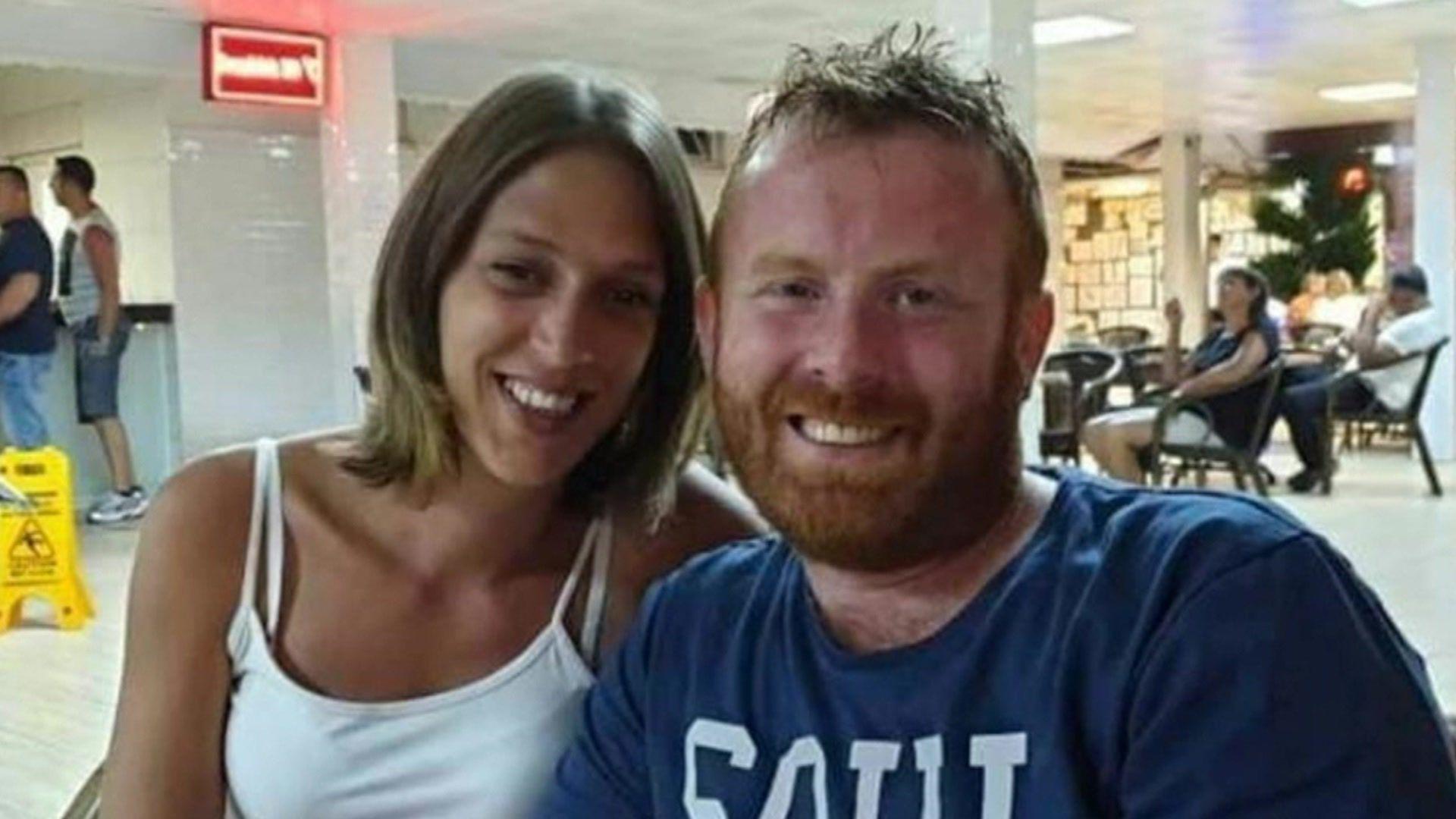Treatment hopes for cancer that killed my brother
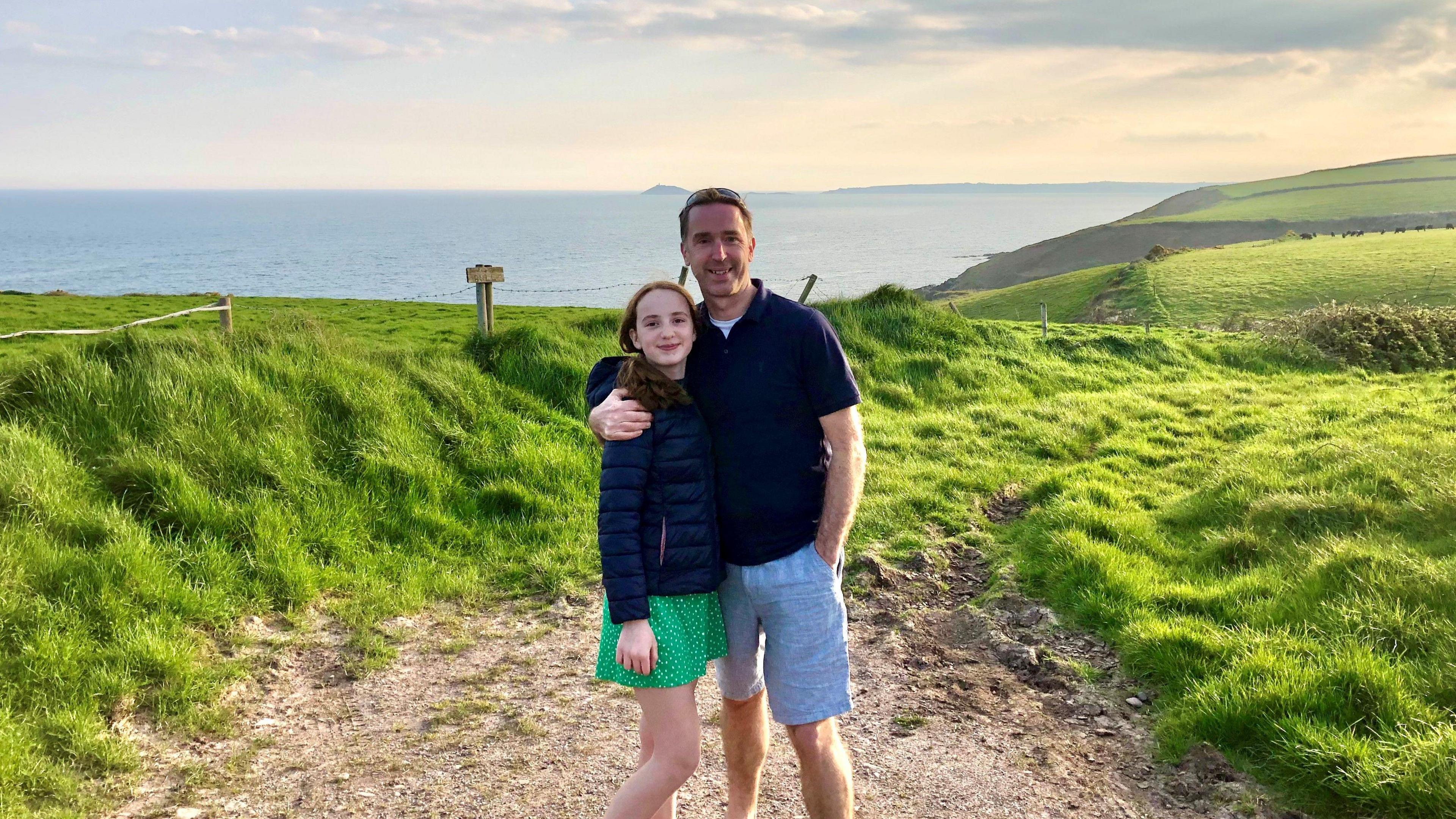
Spencer Turvey died from acute myeloid leukaemia (AML) in 2020
- Published
My brother Spencer was just 45 when he died a day after being diagnosed with an aggressive blood cancer.
We had always been close, despite me living in Yorkshire and him in Ireland. I am godfather to one of his three children and we were best man at each other's weddings.
His death was a huge shock for our family - and the hopes of successful treatment for many patients with similar cancers depend on clinical research such as that now being carried out in York.
Keen to know more about the work, I visited the Centre for Blood Research, a joint venture between York Hospital and the University of York where they are carrying out studies into the DNA mutations that can cause blood cancer.
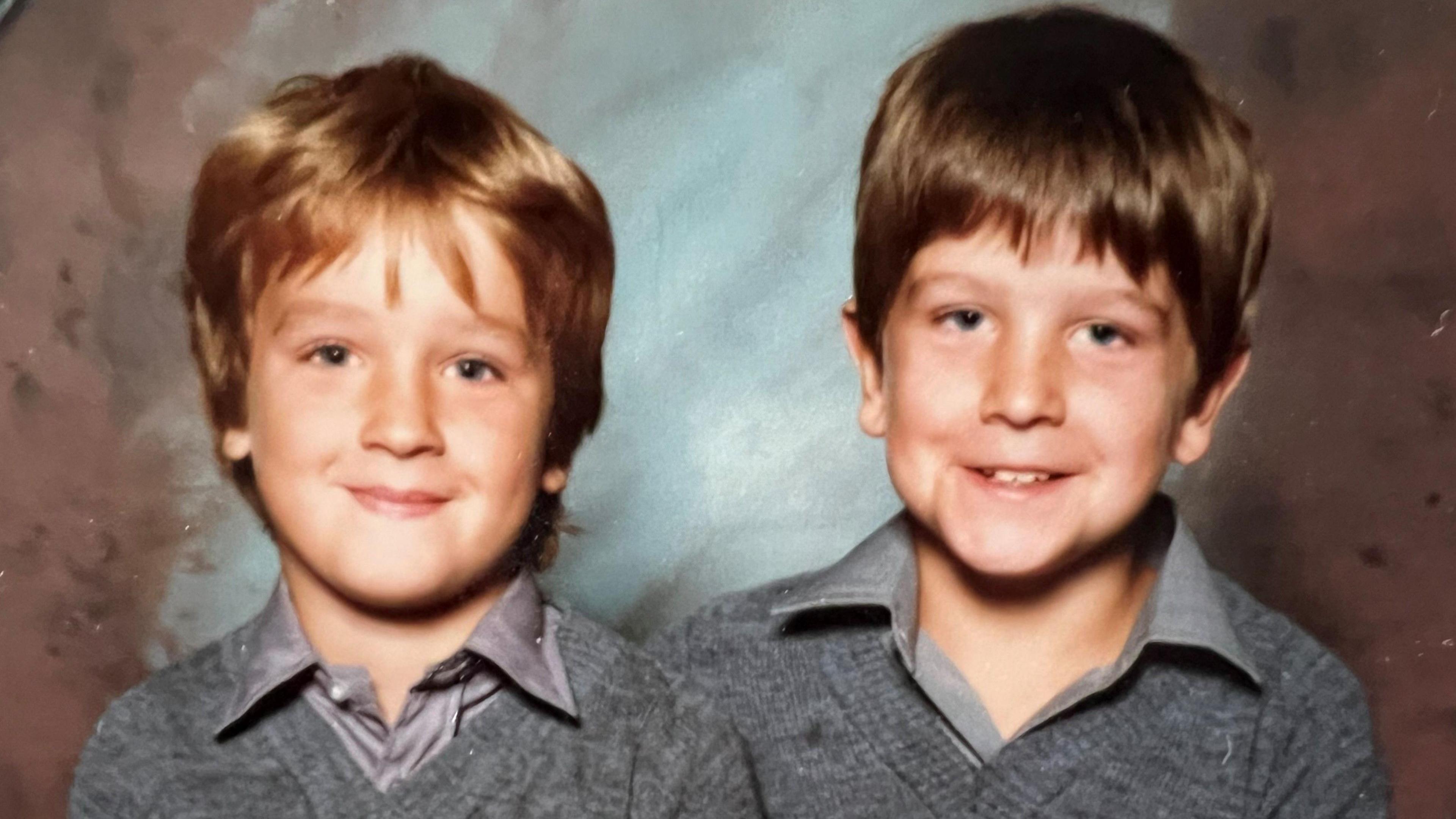
There was just 18 months between brothers Spencer (left) and Nathan (right)
The participants in the study, which is partly funded by the charity Blood Cancer UK, have illnesses characterised by an overproduction of red blood cells.
Since Spencer's acute myeloid leukaemia diagnosis in 2020, I have been interested in blood cancers, which are the fifth most common form of the disease in the UK.
He became unwell and sought treatment after spotting blood in his urine, but died soon after in the same hospital where he had worked in physiotherapy.
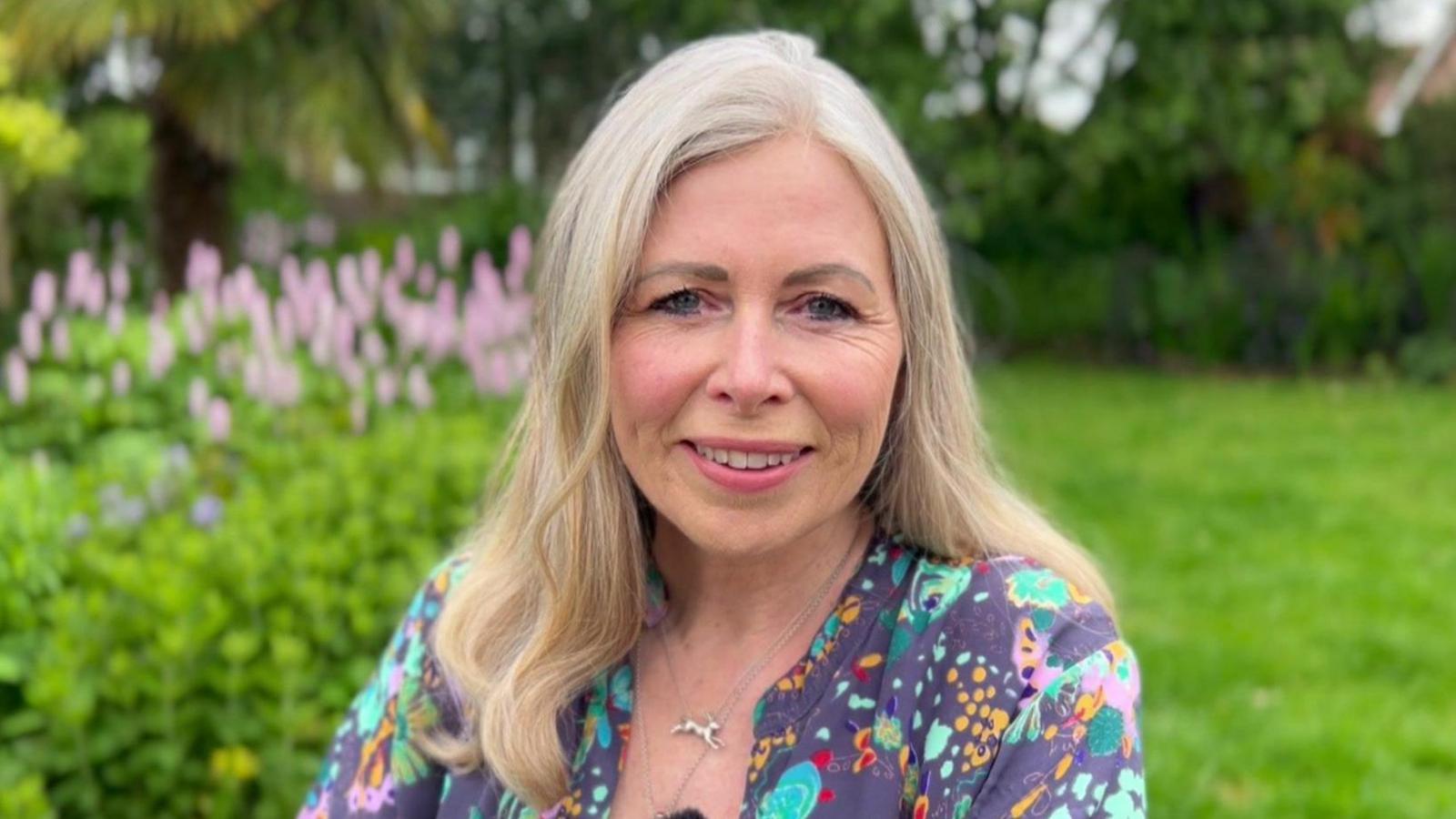
Sarah Proctor is taking part in ground-breaking blood cancer research in York
One of the patients who has agreed to take part in the study is Sarah Proctor, 55, who has been living with a type of cancer called polycythemia vera since 2017.
"Anything we can do to help is so welcome - so I jumped at the chance," she tells me.
"I am one of the lucky ones. The science is moving on so rapidly now.
"I'm just keeping my fingers crossed that the small step of allowing the researchers to use my blood for research is going to help me and so many others."
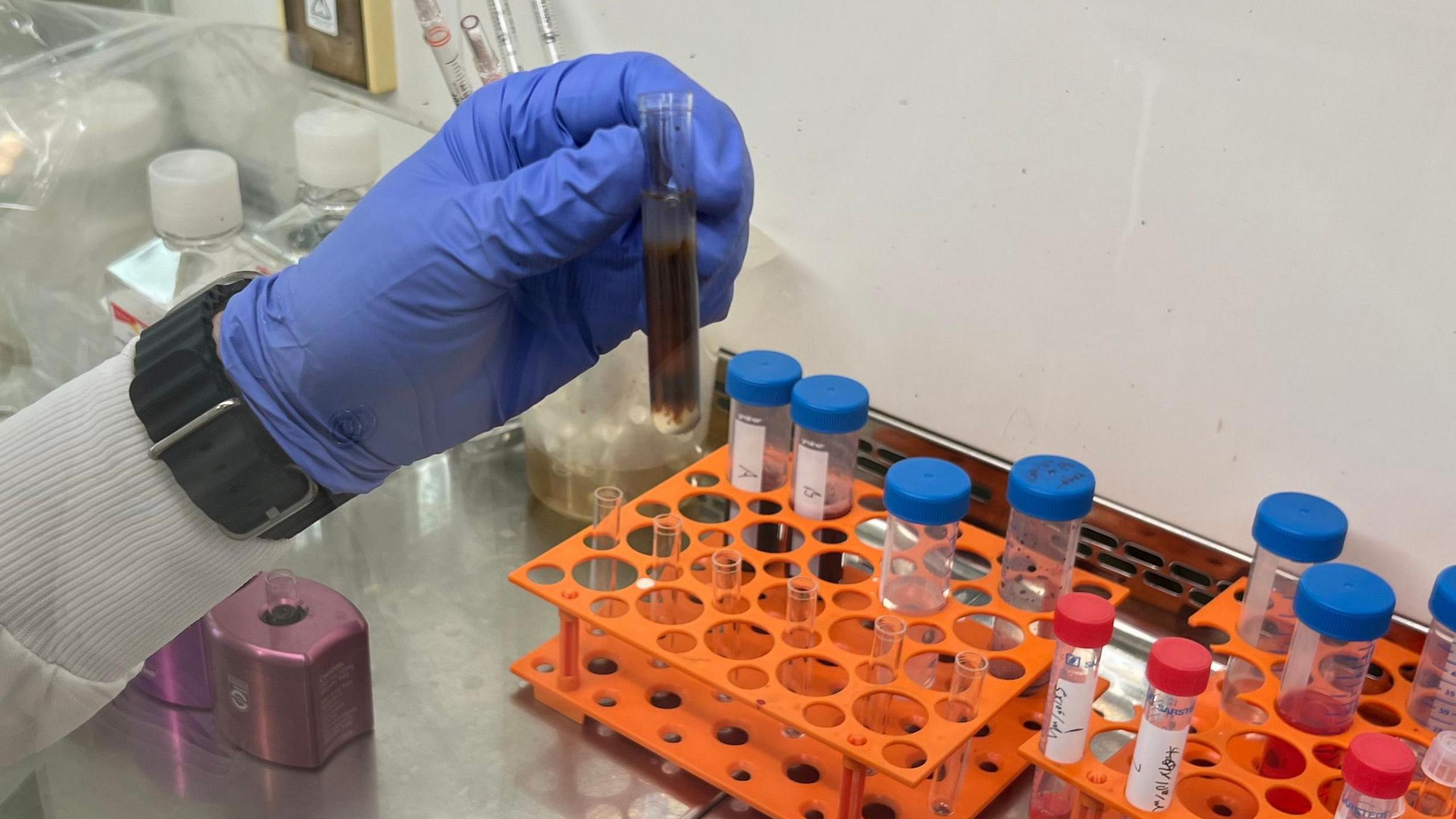
Scientists have teamed up with York Hospital to study DNA mutations behind blood cancers
The Centre for Blood Research's team is led by five women - Dr Katherine Bridge, Dr Alyssa Cull, Dr Alexandra Smith, Dr Kate Foley and Dr Annika Whittle - based at the university's Heslington campus.
Their work is funded by cancer charities the Kay Kendall Leukaemia Fund, external and Cancer Research UK, external.
Their aim is to develop kinder and more effective treatments for the 40,000 people diagnosed with blood cancers and disorders each year.
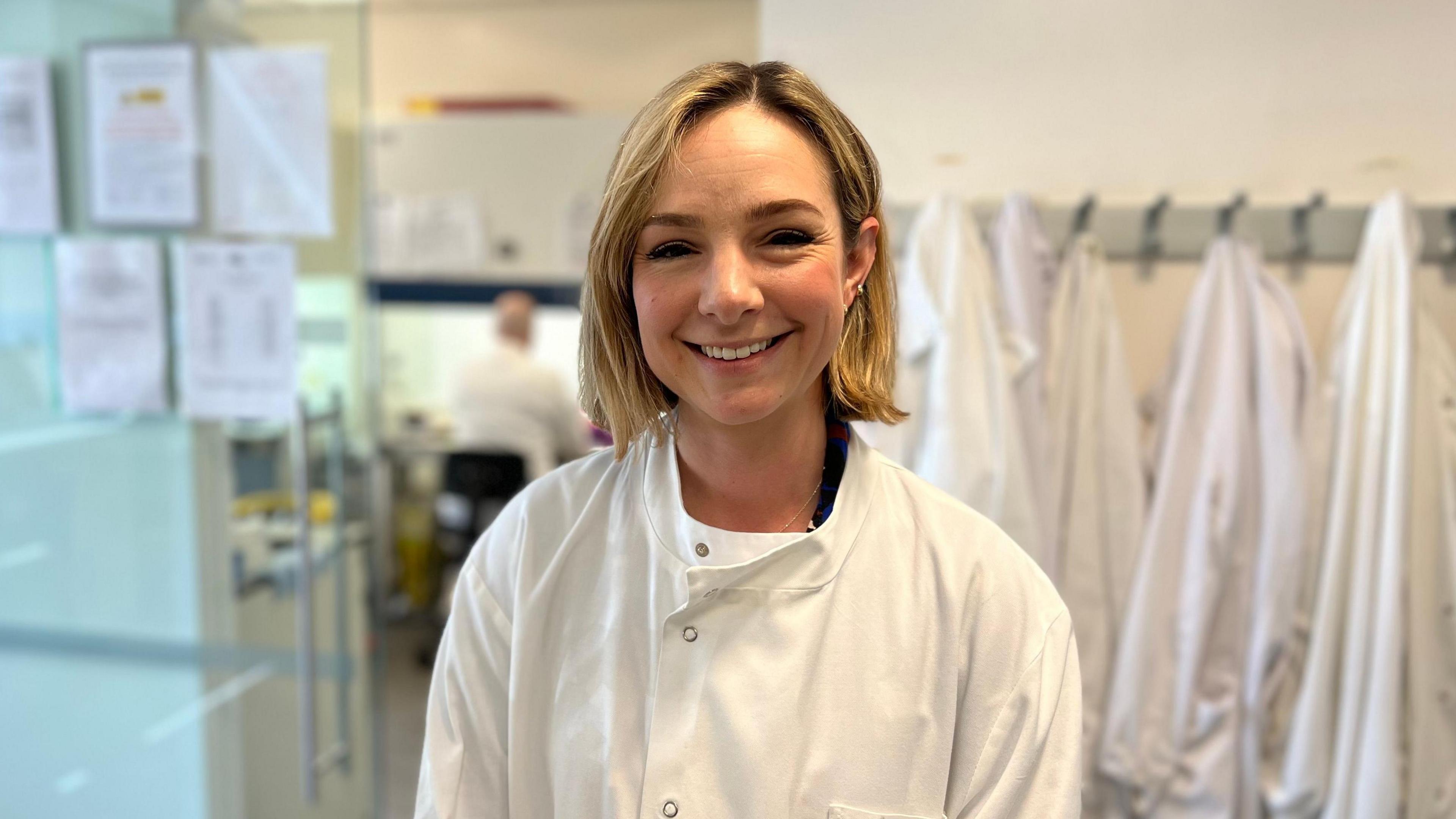
Dr Katherine Bridge is part of the all-female team that has set up the study
Dr Bridge said: "The reality is that there's still so much we don't understand about these cancers, and also so much more we can do to develop drugs and treatments that are more specific, more accurate and more personalised.
"Working with these patients with these types of myeloid cancers, we can actually understand a lot about the more acute leukaemias as well."
Cutting-edge research
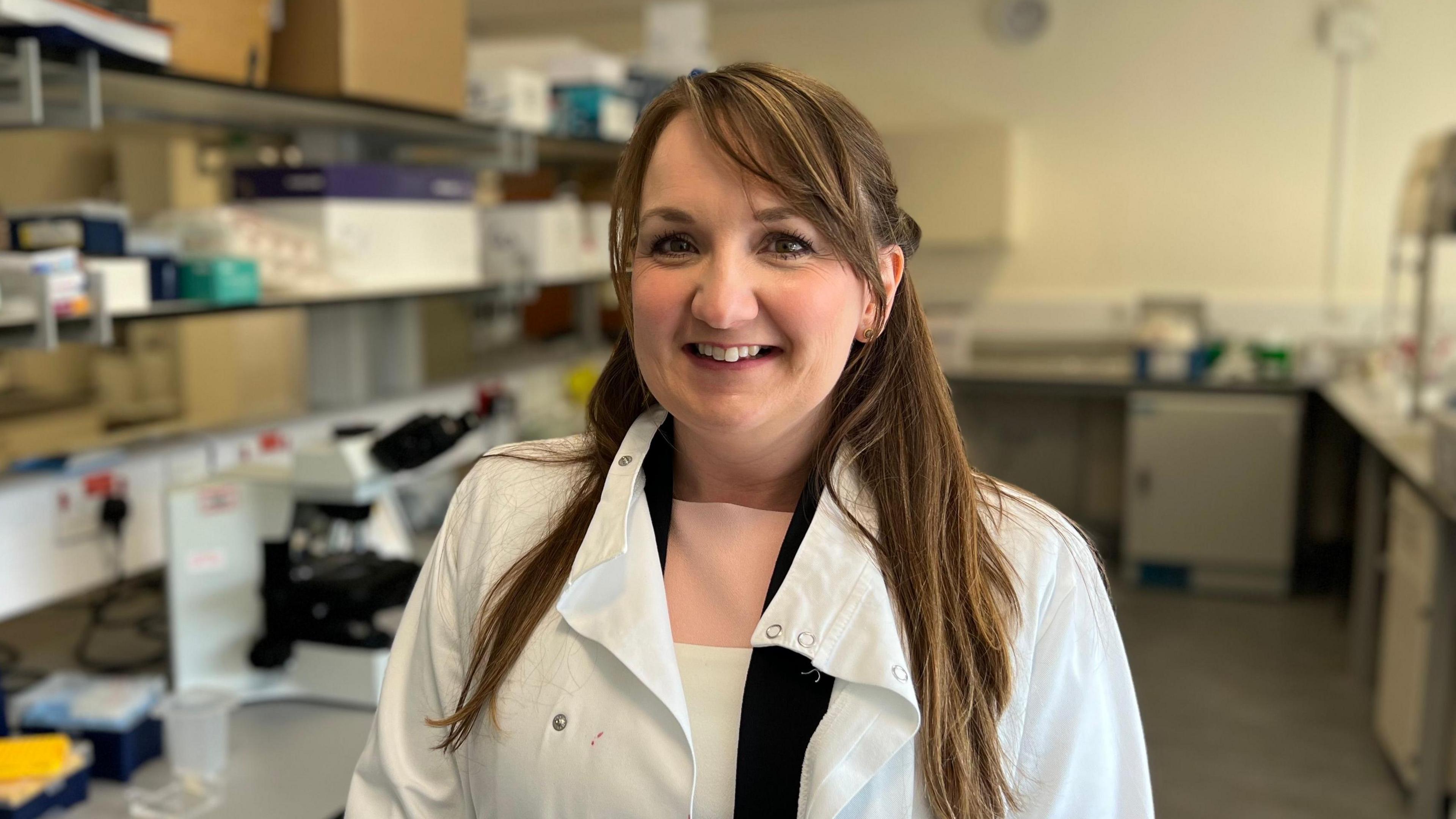
Dr Kate Foley, from York Hospital, finds patients who can participate in the study
Dr Foley added: "It's excellent having this in York. To have the opportunity to be involved in cutting-edge research to benefit our patients is really exciting.
"Our patients in York are amazing and they've been really enthusiastic about this study."
Spencer died so quickly that treatment was not an option for him. We were just 18 months apart in age, and losing him so suddenly was the biggest shock of my life.
Hopefully this research will take us one step closer to understanding and potentially finding a cure for this dreadful disease.
Follow BBC Yorkshire on Facebook, external, X (formerly Twitter), external, and Instagram, external. Send your story ideas to yorkslincs.news@bbc.co.uk
Related topics
More stories like this
- Published15 February 2024
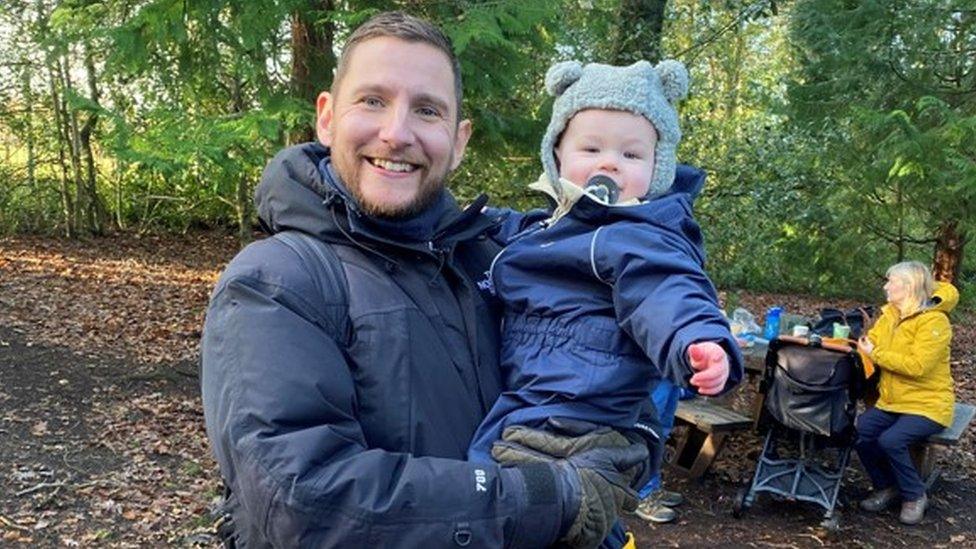
- Published16 November 2023
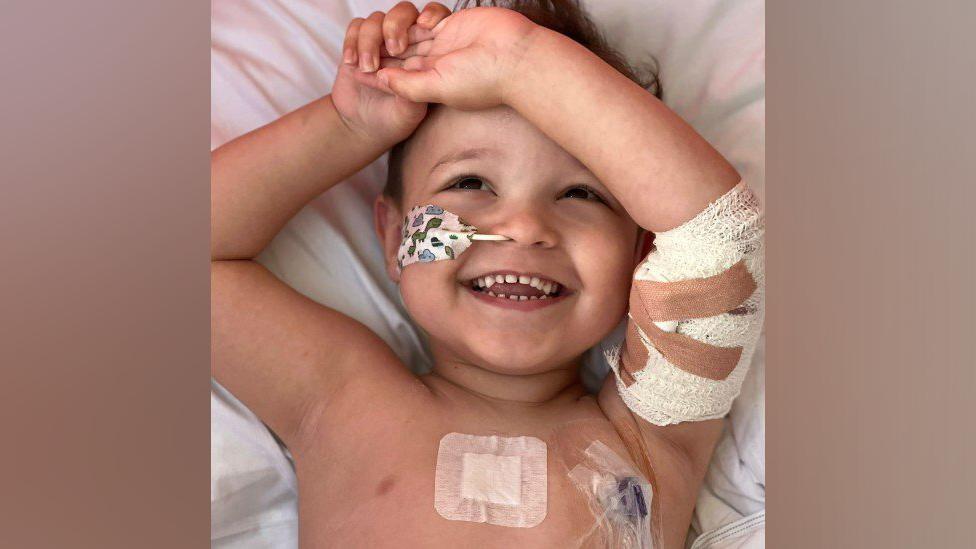
- Published7 April 2024
